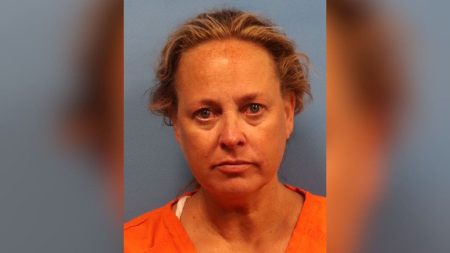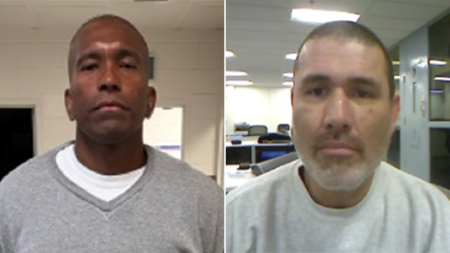Brenda Andrew, Oklahoma’s sole female death row inmate, has been granted a potential reprieve by the Supreme Court. Convicted in 2004 for the 2001 murder of her estranged husband, Rob Andrew, alongside her lover and co-conspirator, James Pavatt, Andrew’s case now hinges on the 10th Circuit Court of Appeals’ review of her claims of unfair prejudice during her trial. The core of Andrew’s appeal revolves around the prosecution’s alleged exploitation of her sexual history, painting her as promiscuous and morally reprehensible to influence the jury. This tactic, her attorneys argue, violated her due process rights, infecting the trial with unfairness and ultimately leading to an unjust death sentence.
The Supreme Court’s decision acknowledges the prosecution’s extensive focus on Andrew’s sexual conduct, including details about past partners, attire, and intimate moments. The justices emphasized the question of whether this emphasis, irrelevant to the murder itself, unduly biased the jury against Andrew. This focus, Andrew’s legal team argues, overshadowed the actual evidence related to the murder and played on societal biases against women deemed sexually liberated. They contend that the prosecution intentionally used these tactics to sway the jury towards a harsher sentence, capitalizing on societal prejudices rather than focusing on the facts of the case.
The controversy centers on the prosecution’s use of a thong found in Andrew’s luggage as she fled to Mexico with Pavatt and her children after the murder. Presented as evidence of her intent to abandon her husband and elope with her lover, the underwear became a symbol of her alleged immorality in the prosecution’s narrative. This tactic, Andrew’s defense argues, exemplifies the prosecution’s broader strategy of using her sexuality as a weapon against her, distracting the jury from the lack of concrete evidence linking her directly to the act of murder.
While the Supreme Court’s decision offers a glimmer of hope for Andrew, it’s crucial to understand the dissenting opinions. Justices Thomas and Gorsuch argued that discussions of sex and marriage were inevitable given the circumstances of the case, implying that the prosecution’s tactics, while potentially distasteful, did not necessarily constitute a denial of due process. This dissenting view underscores the ongoing debate regarding the admissibility of character evidence in criminal trials and the potential for such evidence to prejudice juries. The dissenting justices seem to suggest that the focus on Andrew’s sexuality, while perhaps excessive, was not so egregious as to warrant overturning the lower courts’ decisions.
The 10th Circuit Court of Appeals now holds the fate of Brenda Andrew in its hands. They will determine whether the prosecution’s focus on her sexual history overstepped the bounds of due process, potentially leading to a resentencing, a new trial, or maintaining the original death sentence. Andrew’s attorneys are hopeful that the appeals court will recognize the inherent unfairness of using a defendant’s sexual history to secure a conviction, especially in a case as serious as capital murder. They believe that the prosecution’s tactics not only prejudiced the jury against Andrew but also set a dangerous precedent, allowing personal biases and societal prejudices to influence legal proceedings.
The outcome of this appeal will have significant implications beyond Brenda Andrew’s individual case. It could set a legal precedent regarding the permissible use of character evidence, particularly concerning a defendant’s sexual history, in criminal trials. A ruling in Andrew’s favor could strengthen protections for defendants against prejudicial tactics employed by prosecutors seeking to exploit societal biases. Conversely, a decision upholding the original conviction could reinforce the existing leeway afforded to prosecutors in presenting their cases, potentially leaving defendants vulnerable to similar tactics in the future. The case highlights the delicate balance between allowing the prosecution to present a complete picture of the circumstances surrounding a crime and preventing them from unfairly prejudicing the jury against the defendant. The 10th Circuit Court of Appeals now faces the challenging task of navigating this complex legal landscape and rendering a decision that respects both the rights of the accused and the pursuit of justice.










